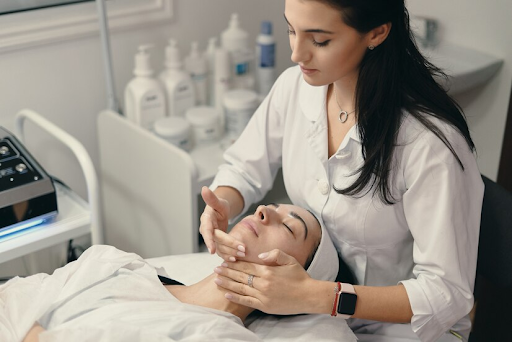Skin-related concerns can appear without warning, often causing discomfort, anxiety, or even social withdrawal. From sudden allergic reactions to persistent rashes and acne flare-ups, timely access to the proper medical attention is essential. The skin is not just a protective barrier—it reflects internal health and hormonal balance, which makes its care even more critical.
Yet, when urgency strikes, many patients and caretakers are uncertain about choosing a qualified skin specialist doctor in Mumbai. The process involves more than just availability; it requires careful consideration of the doctor’s expertise, accessibility, and the hospital’s capability to support immediate diagnosis and treatment.
Why Immediate Dermatological Attention Is Critical?
Skin conditions can escalate rapidly. Common examples include hives, drug allergies, cellulitis, or chronic conditions such as eczema or rosacea flare-ups. Delayed attention may lead to complications, infections, or scarring.
Getting evaluated by a skin specialist doctor in Mumbai at the earliest time allows for faster intervention, symptom relief, and better outcomes. Dermatologists trained in acute care can identify the root cause quickly—be it a contact allergen, an underlying infection, or a systemic issue—and start appropriate therapy immediately.
What to Look for in a Skin Specialist
When selecting a dermatologist—particularly in urgent scenarios—certain qualities become more important than others.
- Medical Credentials
The dermatologist should ideally hold a recognised postgraduate qualification such as an MD or DNB in Dermatology. You may also look for affiliations with professional bodies or academic contributions as indicators of their experience.
- Practical Experience in Emergency Cases
Skin emergencies need quick thinking and clinical confidence. Dermatologists working in multi-speciality hospitals or with a background in acute care are often better prepared to manage complex or fast-progressing conditions.
- Hospital Support and Diagnostic Access
Many skin conditions require investigations such as skin scrapings, blood tests, allergy panels, or even biopsies. Dermatologists practising in hospital settings with in-house services can offer more efficient and timely care.
- Availability and Quick Consultation Options
For emergencies, a doctor who consults regularly, either on-call or through emergency departments, is more dependable than someone only available through prior appointments.
Role of Hospital Infrastructure in Skin Care
A well-equipped hospital can significantly enhance the effectiveness of dermatological care. For instance, departments like internal medicine, pathology, immunology, and radiology allow for collaborative diagnosis which is especially important in skin conditions with systemic links.
Hospitals with emergency services, round-the-clock diagnostics, and digital medical records also streamline follow-ups and post-treatment care, ensuring continuity and convenience for the patient.
Additionally, some healthcare groups ensure their skin specialists are supported by nursing staff, counselling teams, and access to modern equipment like phototherapy chambers and laser units, essential in treating certain chronic or complex skin diseases.
Simple Tips to Choose the Right Dermatologist
Choosing a skin specialist does not need to be overwhelming. Here are a few practical suggestions:
- Verify credentials: Use the hospital website or medical registry to check for board certification.
- Check online reviews cautiously: While reviews help, focus on those that describe medical expertise and responsiveness, not just hospitality.
- Look for emergency care support: If your condition is urgent, ensure the hospital or doctor can offer same-day consultations.
- Ask about follow-up care: Some treatments, especially for acne, fungal infections, or dermatitis, require repeated monitoring and adjustment.
- Consider proximity: In urgent scenarios, access to nearby care can make a difference in recovery time.
When to Seek Immediate Dermatological Help
Sometimes, it’s easy to ignore skin symptoms, thinking they’ll subside on their own. However, you should consider urgent consultation if you experience:
- Sudden or spreading rashes
- Severe itching or burning sensations
- Swelling, blisters, or pus formation
- Painful skin lesions or ulcers
- Unexplained bruising or discolouration
- High fever accompanied by skin changes
These could be signs of infection, allergic reaction, or autoimmune activity—conditions that benefit from prompt treatment to avoid worsening.
Know more about : Skin Diseases: Know About The Common Types
Conclusion
Skin health is often underestimated, even though it significantly affects comfort, appearance, and overall well-being. Knowing how to identify and reach the right skin specialist doctor in Mumbai can ensure quick relief and reduce the risk of long-term effects when symptoms arise.
Patients and caretakers looking for immediate, expert-led skin care may consider hospitals known for their structured dermatology services, specialist availability, and modern diagnostic support. Leading healthcare institutions, such as Nanavati Max Super Speciality Hospital, are equipped to offer such comprehensive, timely care.

